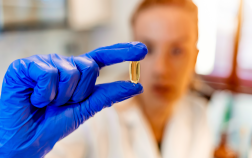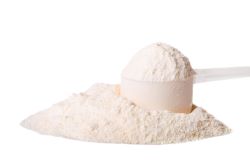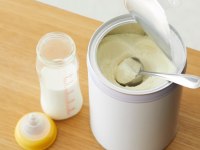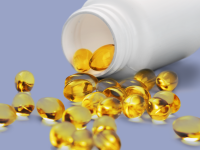
Andrzej Benkowski
Technical Manager, Probiotics & Dietary Supplements
As the Technical Manager at Eurofins Center of Excellence for Probiotics, Andrzej Benkowski brings over 18 years of expertise in biotics quality management, testing, and technology. With a strong technical background in food microbiology, Andrzej specializes in contract R&D, method development, and pioneering technologies for probiotic evaluation.
Since 2019, Andrzej has chaired the International Probiotic Association (IPA) Technical Committee and has been a member of the IPA Board of Directors since early 2024. He also contributes to the IPA Postbiotics Committee and has served as the IPA expert liaison with the International Organization for Standardization (ISO) TC34/SC9 Working Group 11 since 2022, co-convening their Enumeration Subgroup.
Andrzej is dedicated to advancing the biotics industry by setting rigorous standards and driving innovation with a focus on quality.
Outside of his professional and scientific achievements, Andrzej is a member of the Eurofins Madison Site Employee Engagement Team and manages the Community Supported Agriculture (CSA) Program for the site. A founding member of the funk band Steez, he also plays saxophone, synthesizers, and vocals. Andrzej enjoys the outdoors, spending time with his family, and pretending to be a coffee aficionado. Additionally, he has a passion for collecting sneakers and fitted hats.
Below are resources from Andrzej:
Navigate pesticide MRLs with confidence. This guide explains pesticide maximum residue limits, key Maximum Residue Limits regulations, and how pesticide residue testing supports global compliance. Learn what food export MRL requirements mean for suppliers, brands, and QA teams to protect products and ensure market access.
Learn how mycotoxins like aflatoxin and ochratoxin impact food safety, and why effective mycotoxin testing and monitoring are essential for reducing contamination risks.
From the growing regions to the production and processing, mycotoxins pose a unique threat to the safety, quality, and marketability of coffee and spices. In this webinar, we expand upon the emerging mycotoxin risks, climate-driven contamination patterns, and the latest testing technologies to ensure compliance and protect your products. Originally Aired on November 12, 2025
Ensuring the safety, quality, and authenticity of dietary supplements has become increasingly complex in today’s global marketplace. To protect consumers and brands alike, robust quality systems, third-party certifications, and traceability measures are essential. This webinar highlights key integrity challenges facing the dietary supplement industry, from misleading claims to adulteration concerns, and advanced analytical solutions that address them.
Join us for a focused session on Eurofins’ new Product Certification program—designed to set a higher standard for quality and transparency across the dietary supplement, food, and retail industries. Learn why certification matters, how the process works, and what makes Eurofins uniquely qualified to deliver a seal backed by nearly 100 years of testing expertise.
Eurofins Food Chemistry Testing, Madison and Eurofins Assurance are pleased to announce the launch of Clean Sport Certified. This Product Certification programme is designed to safeguard the quality of dietary supplements, ingredients and food intended for athletes. Brands, retailers, and facilities in the dietary supplements industry can leverage this programme to demonstrate their commitment to regulatory compliance and quality. Click to learn more about this new certification.
Whole genome sequencing is no longer just a research tool. It’s a critical asset in food safety, outbreak response, and public health protection. Read our blog to learn more about whole genome sequencing and how it helps us better understand organisms like Salmonella and Cronobacter in food and infant formula.
Discover expert insights from Cheryl Muse, Rail Manager at Eurofins Grain Inspection, as she shares practical tips and key indicators for evaluating grain quality and mycotoxin risks—backed by over 20 years of industry experience.
As consumer demand for cleaner labels and naturally derived ingredients continues to rise, many manufacturers of OTC and dietary supplement products are reformulating to remove artificial colors and dyes. While this shift aligns with market trends, it introduces significant challenges—especially when it comes to product stability.
Eurofins Food Chemistry Testing, Madison and Eurofins Assurance are pleased to announce the launch of product certification designed to safeguard the quality of dietary supplements, ingredients and food. Brands, retailers, and facilities in the dietary supplements industry can leverage these new schemes to demonstrate their commitment to regulatory compliance and quality. Click to learn more about this new certification.












